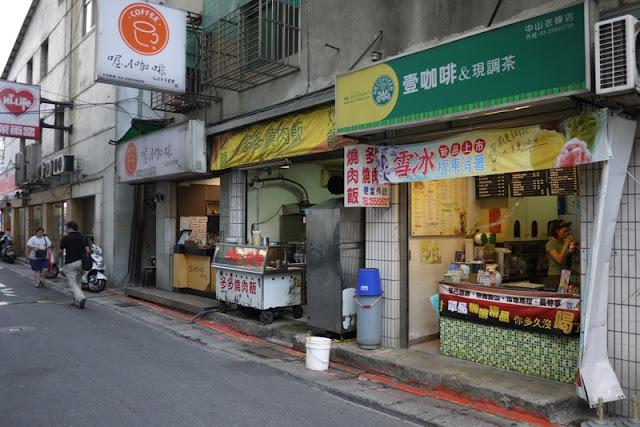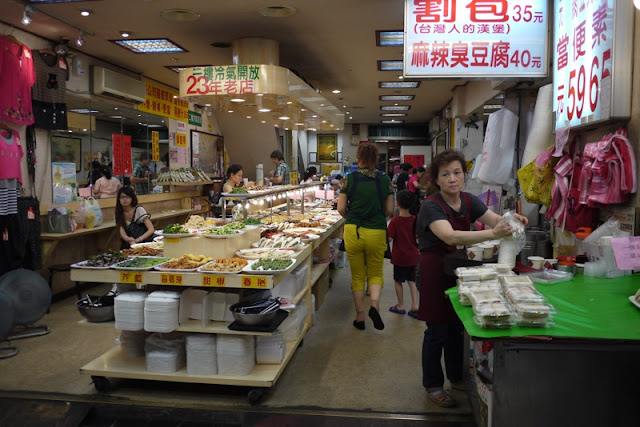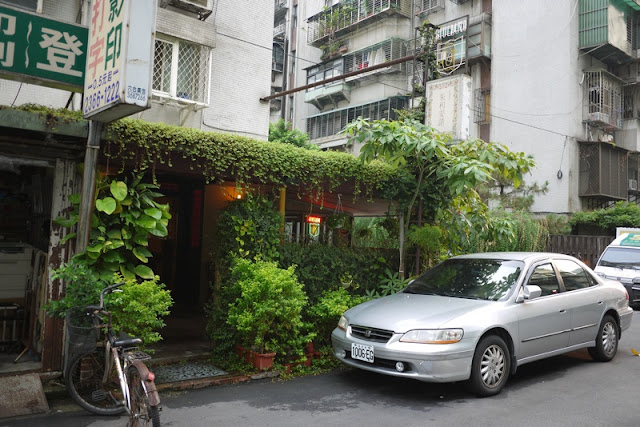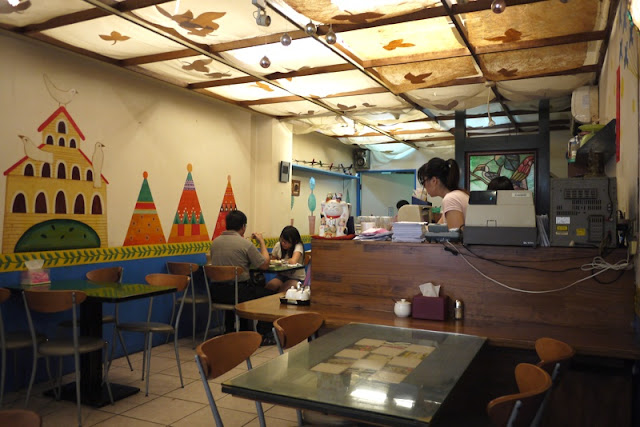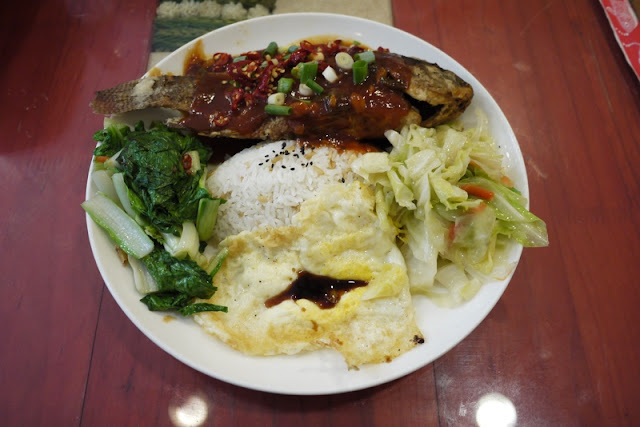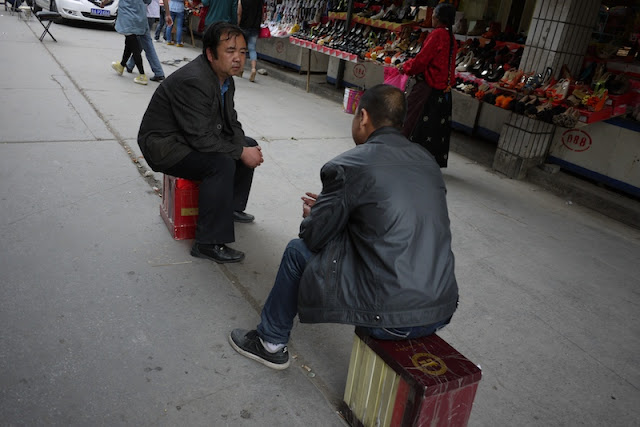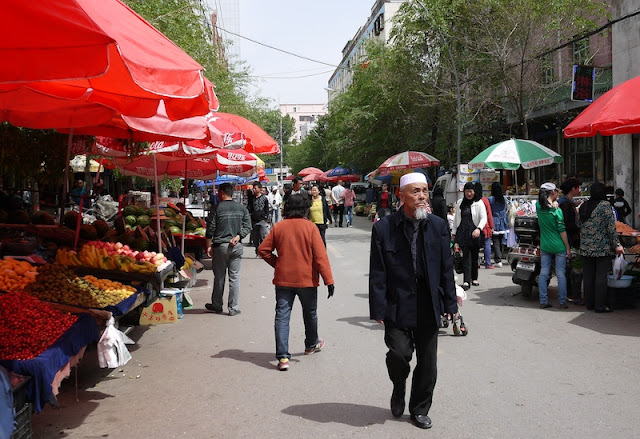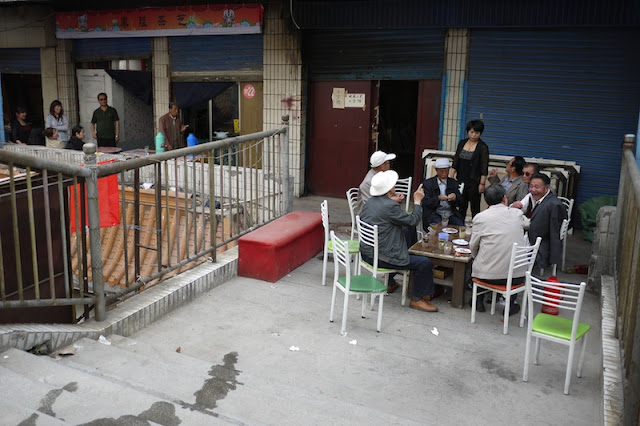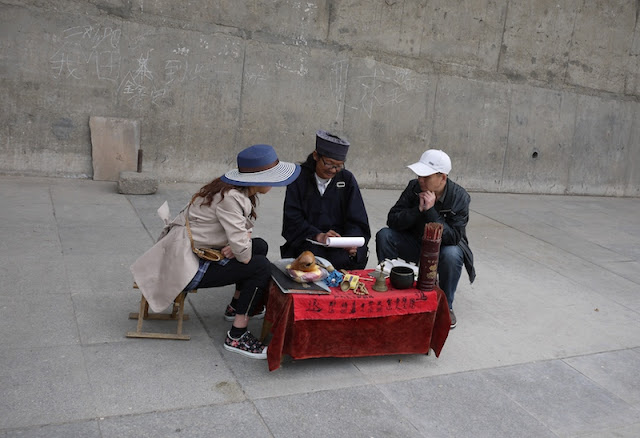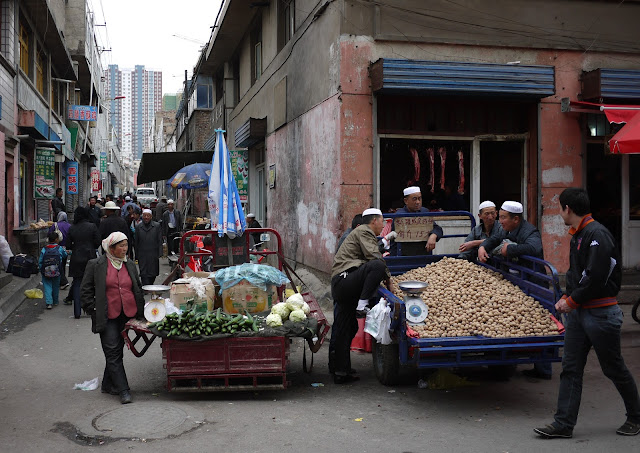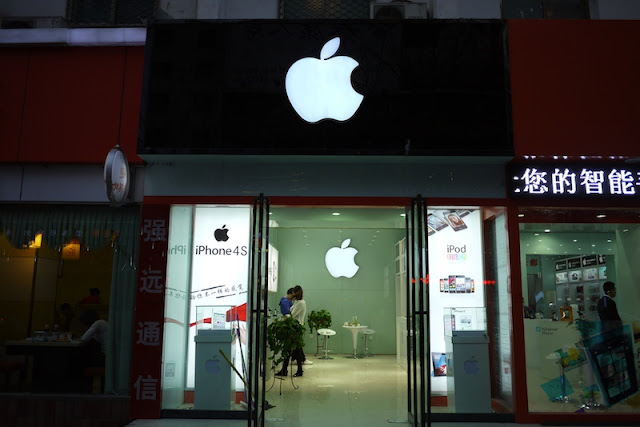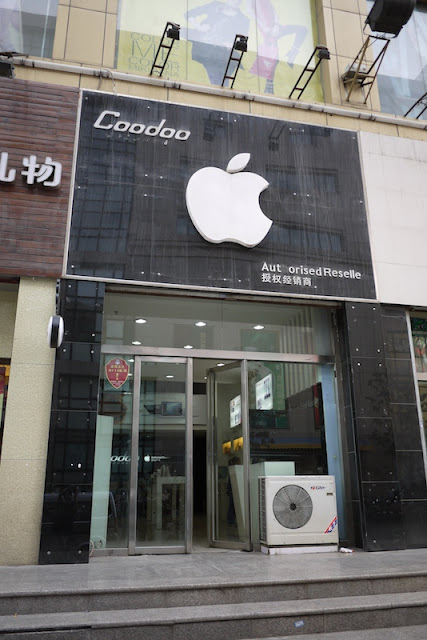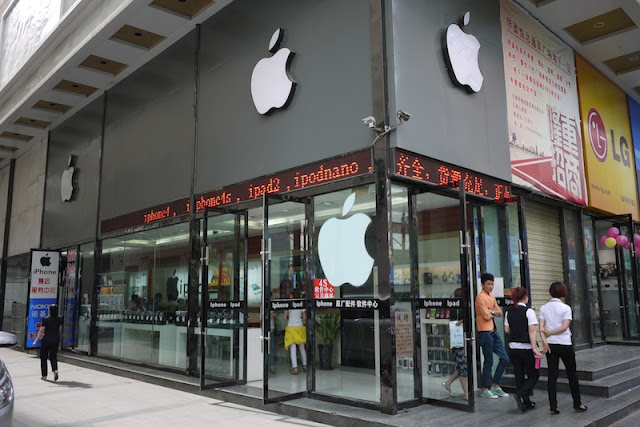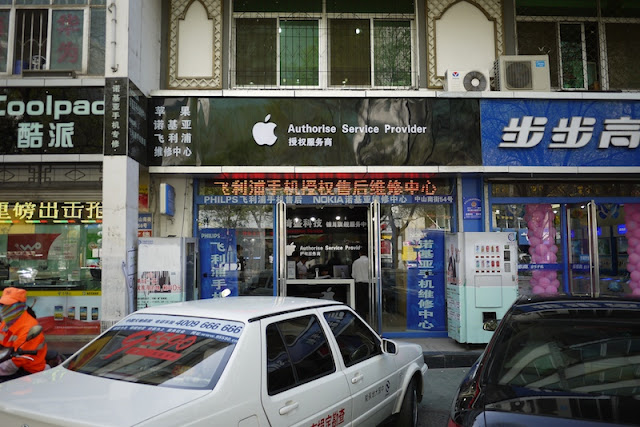Two months ago I entered the Taipei Fine Arts Museum and paused for a few moments as I looked at the sign listing the current exhibitions:
Needless to say, I was both surprised and disappointed to learn that the vast majority of the museum was closed in order to install a new exhibition. My visit proved to be rather brief.
Fortunately, I recently was able to return and see the new exhibition "The Great Acceleration". Not only did my visit last much longer, but I needed a second day to make a first pass through everything. As described in Art Agenda:
See the above links for more on the exhibition.
If you are in Taipei before the exhibition ends on January 4, 2015, I highly recommend spending at least an afternoon there. Below I will share photos of just a few of the installations along with excerpts of descriptions provided by the museum. The photos are not intended to be fully representative of the pieces and don't show any of the art videos. But they do provide a hint of the incredible diversity of artistic expression on display.
*Correction: an earlier version of this post mistakenly referred to the Taipei Fine Arts Museum as the Taipei Museum for the Fine Arts.
Needless to say, I was both surprised and disappointed to learn that the vast majority of the museum was closed in order to install a new exhibition. My visit proved to be rather brief.
Fortunately, I recently was able to return and see the new exhibition "The Great Acceleration". Not only did my visit last much longer, but I needed a second day to make a first pass through everything. As described in Art Agenda:
“The Great Acceleration: Art in the Anthropocene,” curated by Nicolas Bourriaud, casts human subjects as both increasingly ghostly, stressing limitations and finitudes, as well more aligned with the organic, strange, and sensory. In other words: both more dead and more alive. These qualities have been thrown into relief by the ascendance of the machinic technologies and algorithmic logics that have come to condition much of our activity and attention. Expanding on these issues, the biennial, held solely at the Taipei Fine Arts Museum, features 52 artists and collectives, finely installed. As one might expect from Bourriaud, known for coining terms and corralling practices such as “relational aesthetics,” “postproduction,” and “altermodernism,” artistic approaches, rather than particular geographies, histories, or politics, connected the works in the exhibition.And as described by exhibition curator Nicolas Bourriaud:
Human activity has been transforming the planet for millennia. All the ecosystems now bear the mark of human presence, but the scale and speed of change in the last 60 years, called by scientists The Great Acceleration, also led them to name anthropocene this new geological epoch — an era marked by the strong impact of human activities upon the atmospherical and geological evolution of planet earth.
Taipei Biennial 2014 uses this image in order to examine how contemporary art adresses this new contract between human beings, animals, vegetals, machines, products and objects. How does today’s art define and represent our space-time ? The exhibition will highlight the way artists focus on links, chainings, connections and mutations : how they envision planet earth as a huge network, where new states of matter and new forms of relations appear…
See the above links for more on the exhibition.
If you are in Taipei before the exhibition ends on January 4, 2015, I highly recommend spending at least an afternoon there. Below I will share photos of just a few of the installations along with excerpts of descriptions provided by the museum. The photos are not intended to be fully representative of the pieces and don't show any of the art videos. But they do provide a hint of the incredible diversity of artistic expression on display.
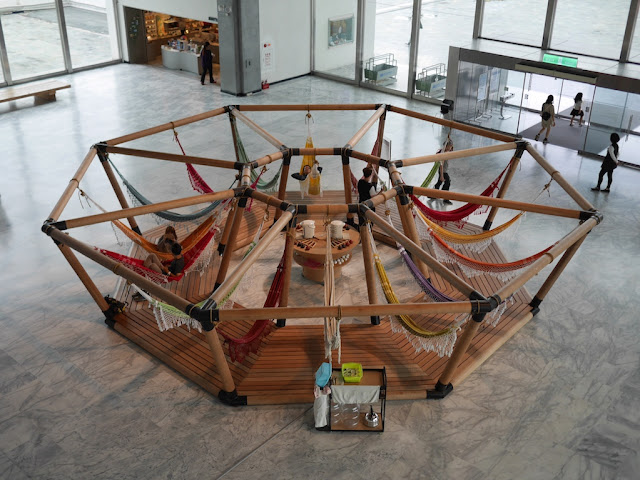 |
| Formasa Decelerator — Opavivará! (Brazil) |
Opavivará! is an art collective from Rio de Janeiro, which develops actions in public places of the city, galleries and cultural institutions, proposing inversions in the use of urban space, through the creation of relational devices that provide collective experiences.
Specially conceived for the Taipei Biennale 2014, Formosa Decelarator is also contaminated by local Brazilian traditions, rituals and tea ceremonies. . . .
The idea revolves around a sort of temple of idleness, an invitation to inactivity, a space that worships the non-productive and non-active and that stands as a counter-proposition to our accelerated, superficial and volatile times. It aims to evoke a collective ambience based on sharing and on the relationships that arise through the interaction of the public, a tool to transform the challenge of living together into a vibrant and pulsating exercise of pleasure, congregation and creative idleness.
 |
| Yucca Invest Trading Plant — Ola Pehrson (Sweden) |
Every plant is in itself a perfectly economical system, with a minimum of waste, with its own resources, something which certainly can’t be said of many companies. A yucca palm tree has been chosen as a representative of a typical plant for a young urban businessman. The plant has been exposed to six months of intensive market education, during which it has been fed with stock market rates encoded into electric currents, combined with an index-related conditioning diet of either rich or meagre rations of water and sunlight. This is an attempt to stimulate a market-adapted habitus, similar to that which years of financial transactions develop in the experienced stock brokers’ nervous system.
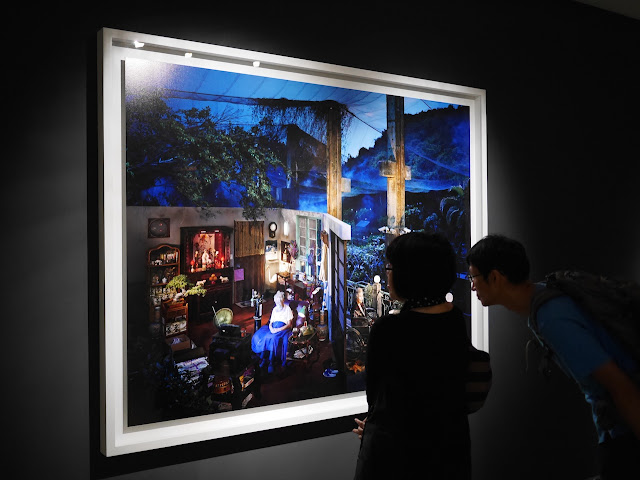 |
| Zoo — Ching-Hui Chou (Taiwan) |
Zoo is a space full of imagination and conflict. It symbolizes a time of joy (for visitors), yet it also symbolizes a time of confinement and segregation (for animals). It symbolizes the convenience and marvels of modern life (a collection of rare animals from all over the world), and it also suggests a hint of the apocalyptic salvation of Noah’s Ark (protecting species on the verge of extinction). Cages in zoos are used as an allusion to modern people’s lives in cages.
 |
| Mobile Phone and Stone Tool — Shimabuku (Japan) |
A mobile phone is one of the newest devices of humankind, and a stone tool is the oldest. Actually, they are similar in some aspects. Firstly, the size is similar. When held in a person’s hand, some of them feel very much alike. Stone tools also have “memory” just like mobile phones. You could imagine “calling” or “taking a photo” with a stone tool.
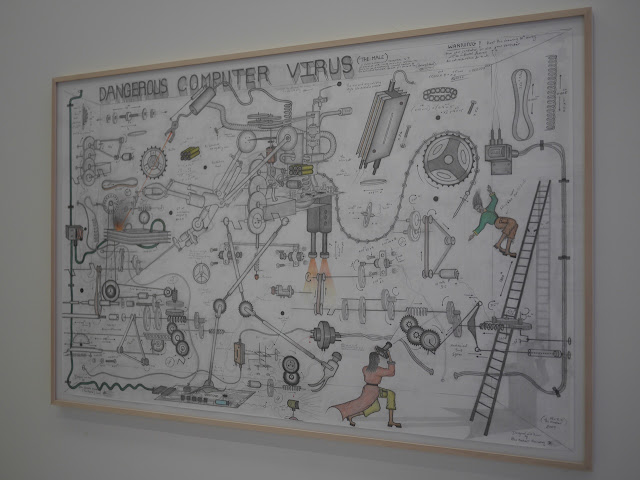 |
| Dangerous Computer Virus — Abu-Bakarr Mansaray (Sierra Leone/Netherlands) |
Mansaray’s creations particularly focus on unusual yet sophisticated drawings and machines based on his scientific background. His preparatory drawings, created by pencil, ballpoint pen or crayons, seem to be blueprints, but they can be regarded as the characteristics of his artwork, as evidenced in the works shown at the Taipei Biennial 2014. There is no doubt that the conflicting, warring circumstances of Sierra Leone play an influential role in shaping Mansaray’s creative imagination and futuristic point of view. Even though his works, to some extent, bear witness to the horrors of war, it is still evident that Mansaray attempts to express the power of creation.
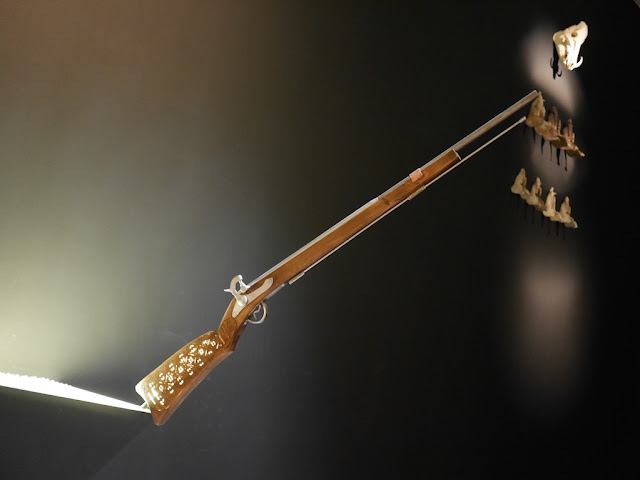 |
| Decriminalization of Taiwanese Indigenous Hunting Rifles — En-Man Chang (Taiwan) |
The term “decriminalization” refers to a situation where a previously illegal activity or action is designated legal. When legal behavior is suddenly reclassified as illegal, that is called “criminalization.” In a civilized society, how is it that the traditional hunting of indigenous peoples results in them being subject to the legal system of a different culture? In the past, hunters were the pride of the tribe, but they are now labeled criminals by the legal system because the prevailing political-economic system declines to respect cultural diversity.
 |
| Keep Soothe and Carry On — David Douard (France) |
The installation Keep Soothe and Carry On, made in 2014, is an installation that takes its starting point in its title, which Douard got from the classic English slogan “Keep Calm and Carry On.” Reflecting present-day reality, this installation is represented in the form of a marketing slogan, with the launch of several derived objects (cups, T-shirts, posters…). That is why Douard has retained the R of a trademark, serving as a powerful symbol in the installation.
He decided to use this advertisement as a tranquilizer in society. The rest of the installation serves as elements of a disordered society which the slogan addresses
 |
| Buk — Harold Ancart (Belgium) |
Buk is a plastic bucket holding a smart phone that plays “The Ultimate Very Best of Elvis” on a loop. The bucket serves as a soundbox for the smart phone as it amplifies the sound of the music released through the speaker of the phone. This anticipative sculpture witnesses a fictional lifestyle improvement for homeless people in the future. No longer subject to cold, for they will all carry electronic warming systems incorporated into their jackets, the homeless people will reunite and party around Buk rather than metallic trash cans set on fire.
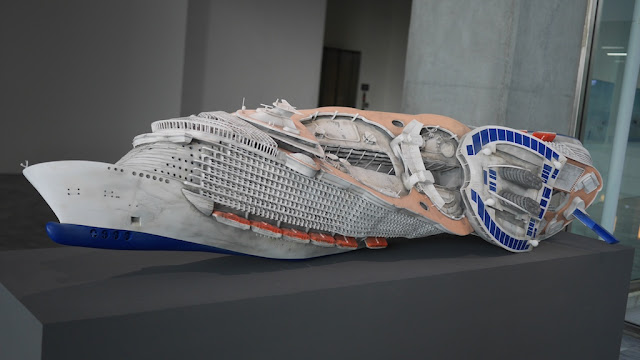 |
| The Deluge – Noah’s Ark — Hung-Chih Peng (Taiwan) |
Reflecting ferry disasters, floods and other recent ecological crises, Peng’s work The Deluge – Noah’s Ark attempts to show the impotence of human beings in the face of uncontrollable catastrophic challenges. The rapid acceleration in the Anthropocene era causes climate change, environmental pollution, and ecological crises. All the measures to control these problems seem to be in vain. Human beings are unable to return to the unspoiled living environment of the past, and have become victims of their own endeavors. This work serves as a metaphor exposing the collision between Mother Nature and the accelerated development of industrialized civilization.
*Correction: an earlier version of this post mistakenly referred to the Taipei Fine Arts Museum as the Taipei Museum for the Fine Arts.



